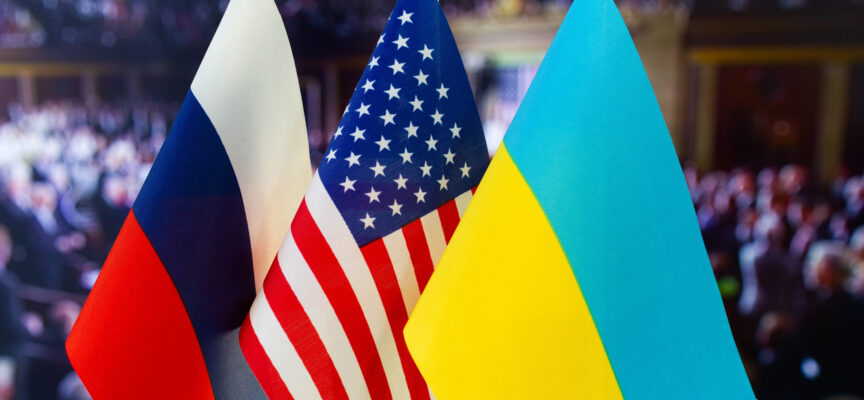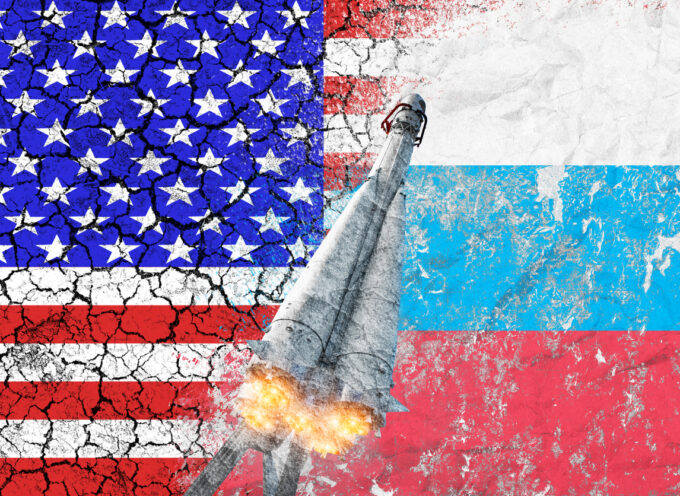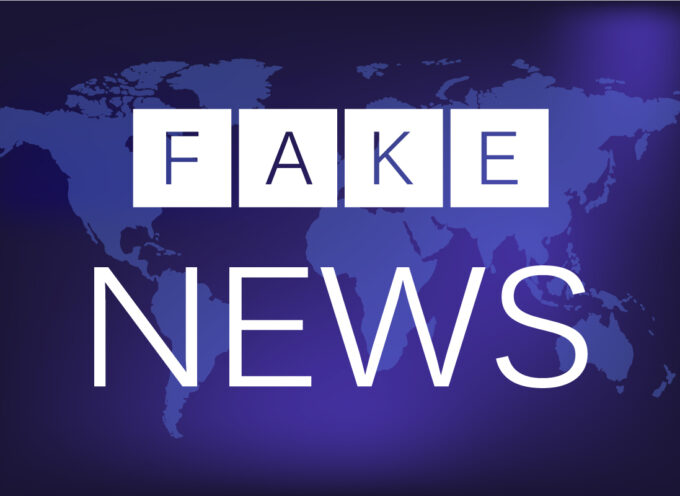During the night Wednesday, Russia launched a military strike against Ukraine, referring to it as a “peacekeeping mission” intended to demilitarize Ukraine. However, it is clear to the international community that Russia’s actions are more than a mere peacekeeping mission: instead, Russia’s invasion is an egregious violation of agreed-upon laws of justifiable warfare.
President Putin has attempted to justify the war with at least four arguments. He has claimed Russia needs to stop purported genocide against ethnic Russians in the Donbas region. He has asserted that Ukraine is not a sovereign nation; He has argued that Russia’s invasion is an act of self-defense against NATO expansion. Fourth, Putin has conjectured that Ukraine is acquiring nuclear weapons for potential use against Russia.
Putin’s invasion of Ukraine clearly is unjustifiable. Rather than striking Ukraine to correct a specific injustice, which is justifiable under the consensual Western ethic of warfare, Russia has justified its invasion with ambiguous claims and false justifications. His dismissal of Ukraine as a sovereign nation is manifestly false. His claims about NATO’s expansion are irrelevant; they do not point to any specific injustice. His argument that Ukraine will use nuclear weapons against Russia is conjecture. And even if his claim is true about ethnic genocide against Russians in Donbas, those claims do not justify a full-scale invasion. Thus, Russia does not have just cause to enter a war with Ukraine.
Similarly, Putin is waging war with the wrong intent. Under this criterion, a nation must intend to restore a previous state of peace. Instead, it appears that Russia intends to expand the Russian empire, send a deathly message to NATO members, and punish a yet-to-unfold scenario in which Ukraine acquires nuclear weapons to defend itself against Russia.
Putin’s brazen violation of international laws of warfare should not go unrequited. As this series of short articles outlines, nations must be held morally accountable for unjustifiable bloodshed. Thus, Americans should urge our nation’s leaders to consistently and unflinchingly oppose Putin’s egregiously unjust war against the sovereign nation of Ukraine.
The question remains, however: should the United States and its NATO allies, intervene militarily? In order to determine the propriety of doing so, seven questions must be answered:
Is there a justifiable cause? In this instance, yes, there is a justifiable cause: to correct a specific injustice committed by Russia and to restore peace and order in Ukraine.
Is there a legitimate authority? A war is just only if the decision is to wage war is made by the political leader or civil body ultimately responsible for maintaining order and providing security. Thus, President Biden could order initial military actions, but Congress would have to declare war.
Is there right intent? The only justifiable intent is to restore a previous state of peace. It is never morally right to wage war for the purposes of enlarging one’s territory or humiliating one’s enemy. Thus, the United States and its allies could intervene to help Ukraine restore the peace.
Do the moral merits of waging war outweigh Russia’s moral merits for invading? The United States can justify intervening in the conflict because the merit of restoring peace far outstrips Russia’s merit in re-annexing its lost “cousins.”
Is military intervention a last resort? In this instance, all reasonable nonviolent options have been considered and exhausted. The United States and its allies have already sanctioned Russia, sanctions which unsurprisingly made no difference. It seems there are no other options. Thus, the United States would be justified if it decides to intervene.
Is there a reasonable chance of winning? War is not justified if an attempt to win the war would clearly be futile. Thus, America’s leaders and our allied leaders must determine whether their nation’s forces have a realistic chance of victory.
Will the results be proportionate to the effort? A war can only be justified if the good a nation expects to achieve upon winning the war are greater than the estimates of what it will cost to achieve the victory.
Will war be waged with the right spirit? A nation cannot justify waging war out of glee or hatred. Instead, it must wage war from a sense of duty, recognizing that war is sometimes necessary but, even when so, it is always a tragic necessity.
Thus, if the appropriate leaders among America and her allies determine that there is a reasonable chance of winning, if they determine that the benefits will outweigh the costs, and if they determine to intervene out of tragic necessity, they will be justified in taking military action.
In a democratic republic such as the United States, it is the duty of Christian citizens to be vigilant with regard to warfare. Based upon historic international laws of warfare, we should recognize the egregious injustice of Russia’s invasion of Ukraine and express our opinion to elected representatives.
We should do so with humility, knowing that we do not ever possess a full knowledge of all of the factors at stake (considering that the military and intelligence communities do not, and usually should not, make all information public). We should do so with confidence, however, knowing that it is our responsibility as citizens to do so, and that the voice of “We the People” is invaluable to our political leaders’ decision-making process.
Subscribe
Never miss a post! Have all new posts delivered straight to your inbox.








You are certainly adhering to the “just war” principles that you have often discussed, and Mr. Putin manifestly is not. But by manipulating the truth, he has sought to justify his war against Ukraine using his own notions of “just war’ principles.
Our leaders have been intelligent enough to balance the moral necessity of assisting Ukrainians with the need to avoid a nuclear holocaust. Could we have defused this situation years ago, or has Putin long planned this ham-fisted attempt to turn back the clock? Historians may long debate this question. But we must remember that every country has its own vital interests, and diplomacy does well to take that into account.
Nicely put. Agreed.
Thank you for posting this! I recently read your article on 8 criteria for a just war theory (https://bruceashford.net/2020/8-criteria-for-deciding-when-its-right-to-go-to-war/) and was curious if you had thoughts about applying your criteria to USA’s decision to war with Russia or not. I agree with all your points and saw that you combined “Just Cause” with “Comparative Justice” as a single point of consideration.
If we assume that the United States approaches war with Russia using your criteria with the assumption that:
-Congress declares war on Russia
-The United States intends to restore peace in Ukraine
-The United States has a reasonable chance of winning
-The United States will wage war in the right spirit
Criteria # 7, Proportionality of Projected Results, is the United States’ biggest hurdle to overcome. Particularly, with the threat of nuclear war, setting the stage for World War III. Thoughts of unprecedented death and destruction from nuclear weapons are not completely unfounded, justifying the United States to remain on the sidelines for direct conflict.
Also, there’s the potential to violate criteria #3, Right Intent, when the United States believes it can police the world. This is crusader ideology. It’s not our job to settle conflicts between nations. The United States must be careful to decide which conflicts it will intervene, including the war between Russia and Ukraine.